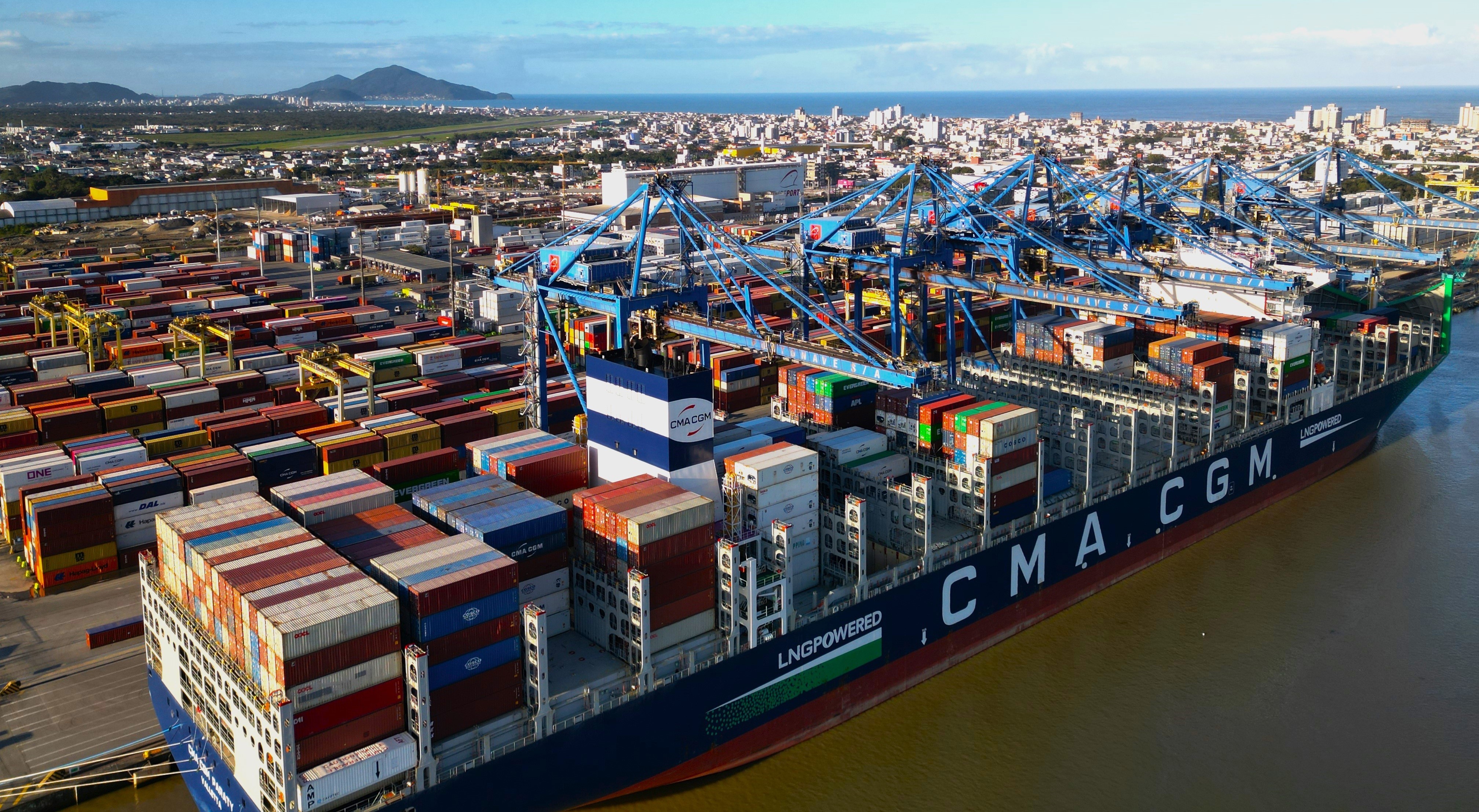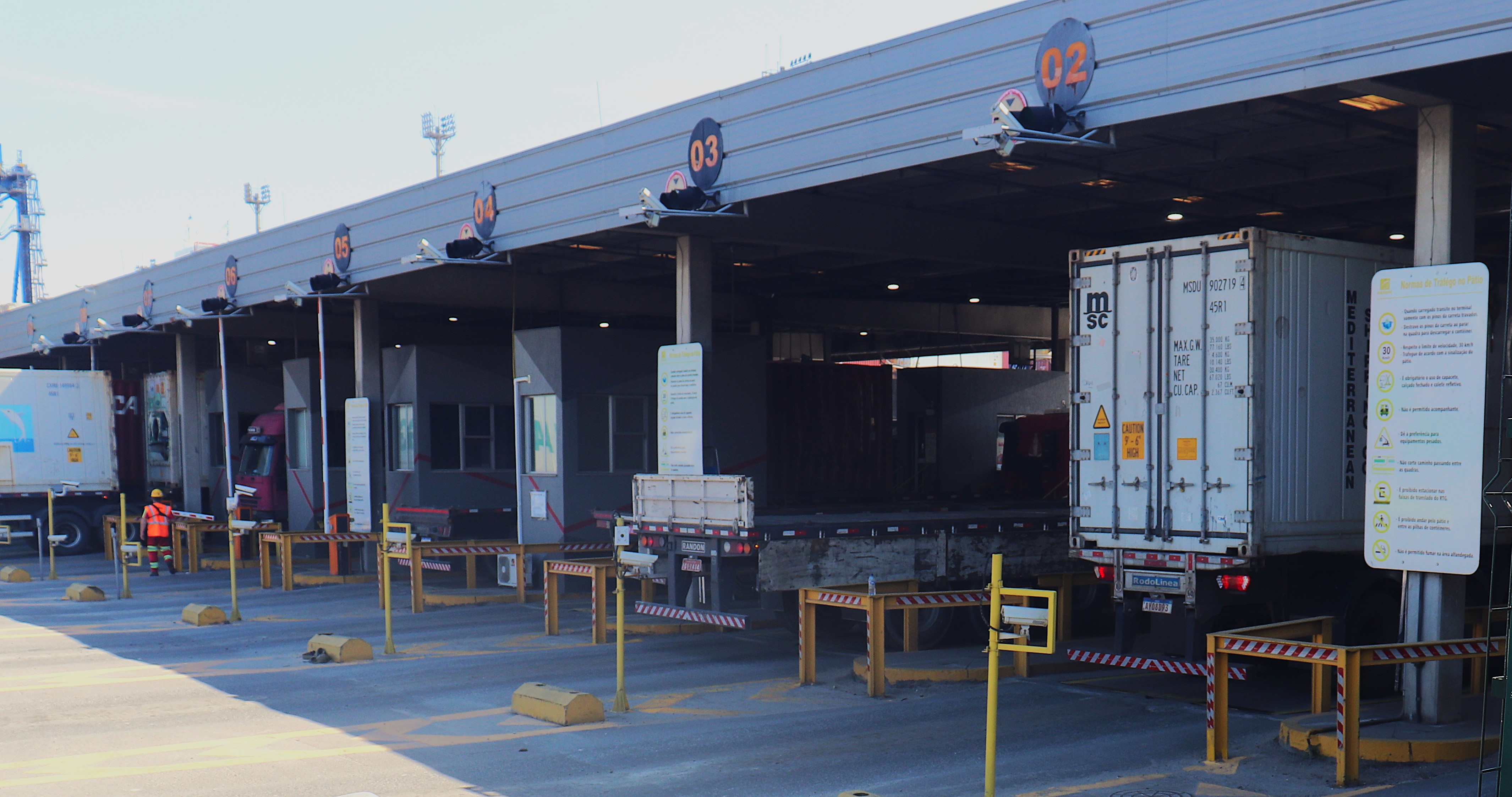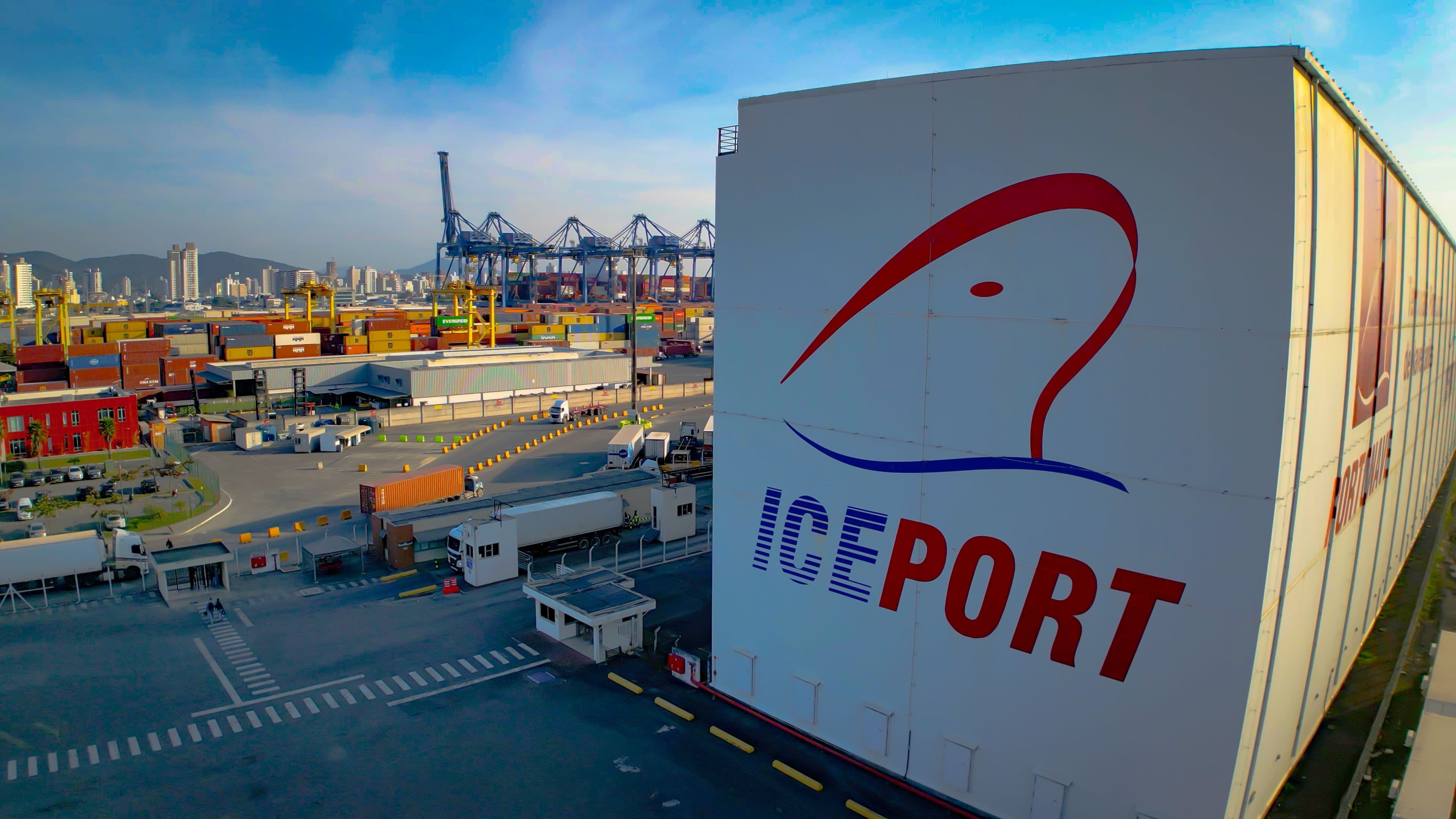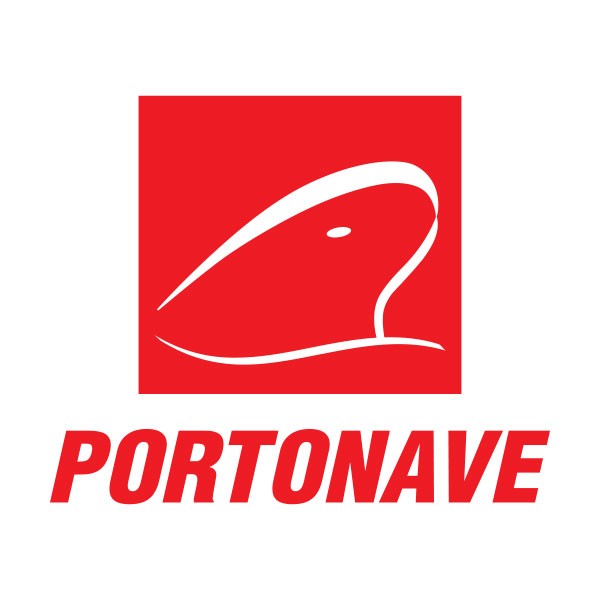Portonave is the most efficient port terminal in Brazil in 2024, according to ANTAQ

In vessel productivity, which is the main indicator of port efficiency, the Company led the national ranking, according to the most recent data from the National Waterway Transportation Agency
In an agile and efficient operation, Portonave, located in Navegantes, on the North Coast of Santa Catarina state, recorded an average movement of 118 containers per hour per vessel at the quay. According to the latest monitoring by the National Waterway Transport Agency (ANTAQ), this is the best vessel productivity recorded among all Brazilian ports from January to November 2024. This indicator achieved a significant growth of 42% compared to 2023. Vessel productivity consists of the number of Movements per Hour (MPH) performed during the container loading and discharge operation, from the first container to the last one handled in operation per vessel. At the company’s quay, movements are conducted by up to six Ship-to-Shore (STS) cranes, port cranes.
In 2024, the Terminal handled 1,261,130 TEUs (Twenty-foot Equivalent Unit), a reduction of just 5% compared to the previous year due to the infrastructure works underway on half of the quay. According to Datamar, a consulting firm specializing in maritime shipping, it also recorded a 12% national share in the operation of long-haul containers, and it is the third largest in Brazil in the ranking of this type of shipment from January to November of last year.
In terms of exports, most of the products handled were wood, frozen meat, and paper at Portonave. In terms of imports, the most handled products were plastic, machinery, and textiles. The main export market was China. Next in the ranking were the United States (second) and Mexico (third). According to data from Datamar, in terms of imports, China also leads, followed by the United States and India, from January to November.
During this period, Portonave was the national leader in handling various segments, such as pork exports, with 24 thousand TEUs handled – 35% of the national market – with the main destination being China. In respect of imports, the product that stood out was tires, with 30 thousand TEUs handled – 33% of all national imports – with the main origin being China. Compared to 2023, demand for cellulose exports increased 21 % in 2024. There were 15.176 TEUs handled last year, mainly to China. In imports, the handling of machinery increased 20% in 2024, with 55.663 TEUs received. Once again, the main product origin was China.
Preparing for the future
In its 17 years of operation, the Company has already handled 13.6 million TEUs and is preparing to receive larger vessels, up to 400m in length. Starting in January 2024, the Quay Infrastructure Works is a private investment of around R$1 billion. According to the most recent monitoring, from November 2024, the first stage of the infrastructure work is approximately 70% complete. At this stage, the eastern side of the structure (450m) is under construction, while operations are carried out on the other half. After completion, Portonave will enter the select list of container terminals capable of receiving the largest vessels in the world, provided that the access channel to the Itajaí-Açu River port complex also undergoes infrastructure works.
Records in truck access: 640 thousand received in the year
An average of 2,000 truck drivers were served daily at the Portonave’s Gate. Drivers spent an average of just 31 minutes at the Terminal. On the highest peak day in all times, 3,308 truck accesses were recorded. With this performance, 2024 wrapped with a historic record of 640,301 accesses from January to December, both container entries and exits.

The handling of refrigerated products grew by 10.5% at Iceport
At Iceport, Portonave’s cold storage facility, 253,678 tons of products were handled, representing a growth of 10.5% compared to 2023. Among the products handled, 64% were poultry and pork, 27% vegetables, and 9% beef. In 2024, the Chamber renewed its Food Safety System Certification (FSSC 22000), one of the most stringent standards systems recognized by the Global Food Safety Initiative (GFSI). This certification attests to good practices in the food safety management system and reliability in operations.


Active participation in the community
Committed to local sustainable development through the Portonave Institute, the Terminal completed 50 initiatives focused on reducing social inequalities, including actions and programs. R$8,9 million was allocated to the actions via tax incentive laws, twice as much as last year. Directly, R$1.6 million were invested in the initiatives. In the Embarca Aí (Get on board) Program, 66 young people were trained in the port segment. Of these, 31 will complete the Young Apprentice program at the company. Under construction throughout 2024, a swimming pool for swimming lessons will soon be opened in the São Paulo neighborhood, a project in partnership with the Nadar Institute. Classes will also be available to people with disabilities or comorbidities. In addition to social projects, R$1.1 million was invested in environmental compensation for the Pedreiras Natural Park in December. Located in the Pedreiras neighborhood in Navegantes, it is the first tourist viewpoint opened in the municipality.
About Portonave
The company is located in Navegantes, on the North Coast of Santa Catarina, and began its activities in 2007 as the first private port terminal in Brazil. Currently, there are 1,300 direct jobs and 5,500 indirect jobs. According to Datamar and considering the national context, from January to November 2024, Portonave was among the three ports that handled the most long-haul containers, and it was the first in Santa Catarina. Besides standing out for operational excellence, the Company is committed to ESG (Environment, Social, and Governance) practices.





